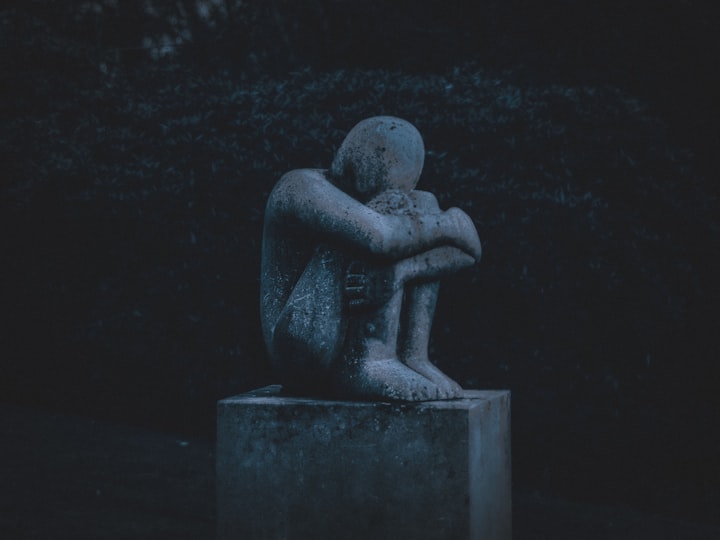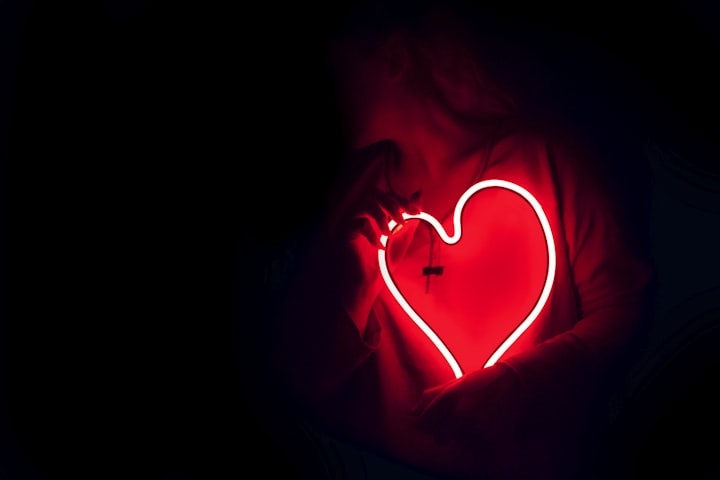'No wonder you're burnt-out' a patient story
Why cultural relatability in healthcare is important

I followed the GP I had been shadowing for two weeks to the waiting area to call on the last patient that day. As she entered the room, and I closed the door behind her, I suddenly noticed a very familiar smell. It was a strong, distinct smell, that brought me right back to when I was a child and visiting family members in Morocco.
I sat down, opposite of her, and next to the GP. She had a well-intended but forced smile, that hid none of her pain. When she tried explaining why she came in, that pain became even more visible.
She lives at home with her 19-year-old daughter, who told her it was time she needed help for what is probably a burn-out. It's been a while since she started having symptoms, but lately things are getting out of hand. She is always tired, doesn’t feel like doing anything anymore, has trouble sleeping, and trouble taking care of herself and the house. As the conversation continued, she told us that she noticed that she had turned into a liar. She doesn’t sleep at night, and basically waits for the daughter to wake up in the morning. They both get dressed and prepare for their day—but for her it’s just a facade she puts on minimize her daughter's worry. Once the daughter leaves home to go to school, she goes back to bed and stays there until the daughter returns. Mail is left unopened. Cleaning is done only when it is most necessary. Food is cooked, but mostly eaten by the daughter. She shared that she has even been lying about being able to fix her daughter’s housekey—so that her daughter would have to text her before she could come home—so that she would have the time to get out of bed and make it look like she’s been awake and doing something the entire day.
At this point I was just I was amazed by her honesty. It had to have taken a lot for her to finally be honest with someone, and I wondered if she knew that this was already a huge step towards her recovery.
My question was answered almost immediately because she continued to judge herself very harshly for being in this situation and not being able to get out.
What I liked a lot what that the GP gave her a lot of room to share her story and emotions, so she continued to mention everything she’s been through over the years. ‘The father of the kids’ as she called him, was murdered a few years ago, not too long before her youngest daughter suffered from psychotic episodes. Her eldest daughter isn’t on speaking terms with her, because she chose to get married at a young age without the approval of her mom and was therefore cut-off. As if this wasn’t enough, she continued by sharing that her brother was also murdered, and that it was left to her to identify the body and deal with the situation. She later found out that her family lied about being busy and unable to help her, and instead were all together hanging out in Morocco.
She kept listing things and all I could think was ‘holy sh*t, no wonder you’re burnt out’.
Though her life was so different from mine, and her story so rare and unimaginable heavy, I felt myself relating to her. I felt a huge urge to talk to her, but I just didn’t know if it was my place to say something or not. Then finally, she asked me where I was from, but before I could answer the GP asked her another question which changed the conversation. And for a second, I felt like I had lost my opening to join.
I heard myself thinking: ‘if I don’t say what I want to say to her, she’s going to walk out without hearing what I think she needs to hear’, and then ‘is that worth risking a negative comment from the GP?’ Well, yes, it is.
So, I interrupted and said ‘You asked me where I was from, and I’m happy to share that my family is also from Morocco. And some parts of your story felt familiar to me.’
‘See, there’s a cultural difference in dealing with negative emotion. There’s a lot of emphasis put on being strong, and there are many things -unfortunately- that aren’t talked about, including feelings. Add to that the family betrayal and lies, and the fact that seeking outside friendships is often devalued and therefore negatively tainted-- you’ll grow up to believe that it is ideal to deal with problems privately and not let anyone know that you’re struggling. You’ve most likely been taught to fight through life alone, and to never complain about the cards you’ve been dealt. But now, after many years of doing that, you’ve reached a point in which you can’t anymore, and that is not strange. When I heard your story, and everything you’ve been through, I was actually quite surprised that this burn-out you describe didn’t happen before.’
She cried in a way that confirmed that what I had been saying resonated with her, and went on to share a bit more about her situation, before coming to a pause.
While the GP took this moment to dive into his computer to document her story, prescribe medications and set another appointment date— she turned her focus to me, in what I imagine was an effort to bridge the perhaps uncomfortable silence she felt. She started asking me personal questions. My age, where I study, what part of Morocco my family is from; things like that, and truth be told, I was hesitant to reply. Suddenly being the subject of the conversation, in a clinical setting, as a health professional in training, didn’t seem that professional to me. But I answered her questions anyway. I figured that she had been so open and vulnerable for the past hour she was sitting there, that it couldn’t hurt to mirror some of that openness.
She smiled in a similar manner as when the conversation started and eventually looked away. I could tell the GP was nearly finished, so I took the opportunity to give her some final advice.
‘I really want you to know that most feelings are temporary. I know you’re hurting. I see that. I know it feels like this won’t end and things won’t get better. Just remember that feelings are temporary. And that you are not alone.’
She cried again, and as she stood up to leave, she reached for my hand. ‘Thank you so much for helping me. I wish you the best of luck with becoming a doctor.’
About the Creator
Dalila Abdelkhalek
a 20-something-year-old girl, born and raised in Amsterdam, with many interests.
One of them is writing.






Comments
There are no comments for this story
Be the first to respond and start the conversation.